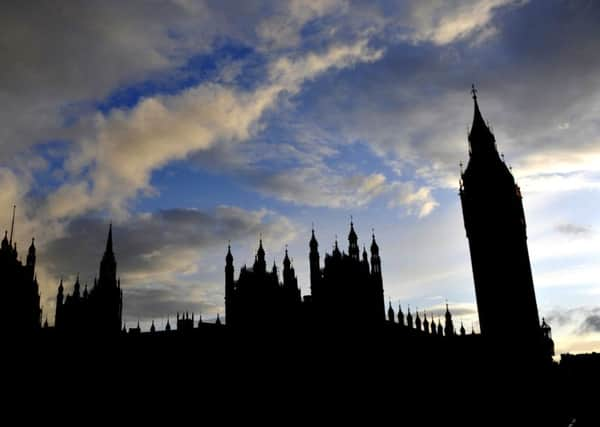Why priests may be victims of legal high ban


Labour peer Lord Howarth of Newport warned the new powers were so wide, they could catch clergymen and even florists selling highly perfumed flowers.
The former minister called for the Government to change the legislation so it is more targeted at dangerous drugs.
Advertisement
Hide AdAdvertisement
Hide AdHis warning came after the Advisory Council on the Misuse of Drugs (ACMD) said the Psychoactive Substances Bill was so widely drafted it could include substances that are “benign or even helpful”, including some “evidence-based herbal remedies”.
In a letter to Home Secretary Theresa May, the ACMD said a blanket ban could even damage the ability of scientists to carry out research on psychoactive substances.
Under the Bill, sellers of “hippy crack” - also known as nitrous oxide or laughing gas - and other legal highs will face up to seven years in prison.
The legislation, which follows a similar move in Ireland, introduces a blanket ban on the production, distribution, sale and supply of legal highs - officially known as new psychoactive substances (NPSs) - after they were linked to scores of deaths.
Advertisement
Hide AdAdvertisement
Hide AdMore than 500 new drugs have been banned by the Government, but the current system is seen as laborious as substances have to be assessed individually before they can be outlawed and manufacturers often produce new versions almost immediately after a previous form has been prohibited.
But during report stage debate on the BIll in the House of Lords, Lord Howarth said: “We really do not want to criminalise priests. The more vigorously the priest swings censer, the more incense is let loose into the body of the church.
“We have to be very careful we don’t unintentionally criminalise either priests or florists, because of course flowers have psychoactive effects.”
Baroness Meacher, an independent crossbench peer and campaigner for reformed drugs law, said the Bill should only cover “synthetic” psychoactive substances, so it did not deal with things such as herbal medicines.
Advertisement
Hide AdAdvertisement
Hide Ad“The point about botanical substances is that it takes years to create a new one,” she said.
“This Bill is designed to control synthetic substances, a new one of which could be created in a matter of minutes.
“The need is to find a definition of synthetic substances that is proportionate, avoiding banning all sorts of harmless products and causing all sorts of untold problems for manufacturers, shops and consumers whilst spreading the blanket ban widely enough to capture all harmful synthetic substances.”
For Liberal Democrats, Baroness Hamwee said she supported the use of the term “synthetic” as that was “surely what this Bill is all about”.
Advertisement
Hide AdAdvertisement
Hide AdFor the Opposition, Lord Tunnicliffe backed the Government’s bid to crack down on legal highs, which he said were causing “tremendous harm”.
He said Labour opposed the “narrowing” of definitions and were content with the definition contained in the Bill.
Home Office minister Lord Bates said the Government was not ruling out the term “synthetic” but did not want to create new loopholes, which could be exploited by the producers of legal highs.
Lord Bates said the definition had been deliberately drawn widely to ensure a blanket ban in a fast-changing market.
Advertisement
Hide AdAdvertisement
Hide AdThere were a number of “naturally occurring substances in years past known as herbal highs that are of concern and far from safe”.
Lord Bates warned that a “substance by substance approach” wouldn’t meet the core objective of the legislation and would allow producers to adapt.
“I’m not ruling out the term ‘synthetic’,” he told peers. “But we want to make sure that if that term is used it is understood, in a legal context, as something which would do what the intention of the Bill is, which is to uphold a blanket ban.”
For the Government Baroness Chisholm of Owlpen later said ministers would bring forward changes to the Bill when it goes to the House of Commons to make clear scientists could carry out research on the banned substances.
Advertisement
Hide AdAdvertisement
Hide Ad“We need to ensure that bona fide medical and scientific research is excluded from the ambit of the Bill while not creating a loophole for others whose only purpose is the recreational use of a psychoactive substance to exploit,” she said.
She said the Government would also seek to exclude specially manufactured drugs for patients from the scope of banned substances.